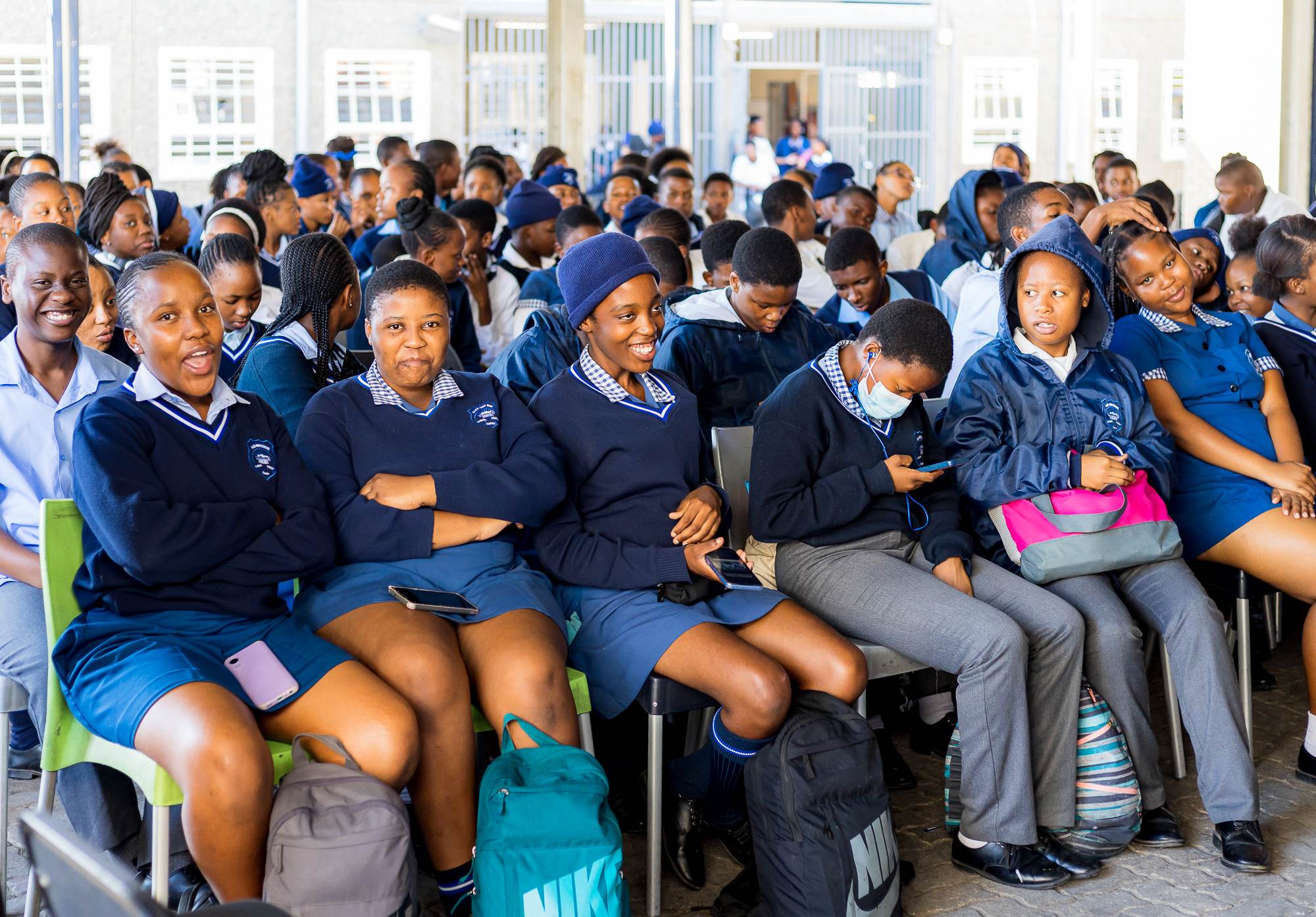By Mashamba Media
news@alexreporter.co.za
Transport Education Training Authority (TETA) launches campaign to tackle the rising numbers of HIV, STIs and pregnancy amongst adolescents
At the peak of the Covid-19 pandemic, the Gauteng Department of Health has reported that more than 23,000 girls aged under 18, gave birth between April 2020 and March 2021, 934 of whom were under the age of 14.
Whilst the Covid-19 pandemic has passed, two critical pandemics remain – rising new HIV infections amongst adolescents and teenage pregnancy.
In 2023, more than 8900 boys and girls aged 15–24 years were infected with HIV and 150 000 young girls were pregnant in South Africa.
This terrifying trend is the main driver behind Transport Education and Training Authority (TETA), launching a “Tackling the Twin Pandemic” campaign in Alex High School in Alexandra township.

TETA has partnered with health officials and social partners to deepen awareness aimed at changing perceptions and risky behaviour amongst young people in the township.
The campaign will run for six weeks, with targeted and in-depth engagements with Grade 8 to 11 learners at Alex High School.
The rationale behind tackling these pandemics as twins is because they are inseparable and linked to sexual behavior.
HIV, STIs and pregnancy are fueled by rape, violence, intergenerational sex, social myths, and risky behavior. Choosing silence and looking away will not bring about sustainable solutions.
Sobering facts and common myths were shared at the opening event with a high level of engagement and well-thought-out questions from learners at Alex High School, the oldest high school in Alexandra township.
Media personality, author and MC, Nicolette Mashile brought a vibrant energy to the programme by creating a safe and exciting ambience to address uncomfortable, but serious issues affecting teenagers.
She encouraged them to respect themselves by looking after their bodies. She also cautioned them against using sexual favours with blessers and older men as a short cut to getting ‘soft life benefits’ before they are mature enough to handle the consequences of risky behaviour.
Strategic Projects Officer at TETA, Haremakale Ramakhetheng highlighted the key role that sectoral education and training entities have, in addressing social issues that present risks to building a healthy and productive workforce, both now and in the future.
“All the bursaries, learnerships and training programmes will not yield the intended results if we ignore the social issues that are faced by young people in our communities and the country at large. We cannot simply look the other way and ‘mind our own business’, because young people are our business and a national issue.
“HIV/ AIDS, STI’s and teenage pregnancy not only delay the progress of young people in building better futures for themselves.
But they have the potential to deny future artisans, bus drivers, engineers and pilots, which also includes various fields of study, together with work opportunities in their desired careers after high school.
“This is why we have initiatives such as these, that are aimed at pandemic prevention,” Ramakhetheng added.
The National Strategic Plan for HIV and STIs promotes a multi-disciplinary and multi-partner approach to reduce the risks and rates of HIV infection and teenage pregnancy.

These interventions of education are aimed at providing access to address social issues, education and building awareness of sexual and reproductive health.
Ramakhetheng shared some of TETA’s strategic drivers, which include national priorities and partnerships. “HIV, STIs and teenage pregnancy are a national issue. We cannot tackle it alone. Without the involvement and commitment of partners, this project and other interventions would not have the impact we want”.
Some of the strategic partners that have come on board are the Networking HIV and AIDS Community of Southern Africa (NACOSA) and the Wits Reproductive Health and HIV Institute (WRHI).
Speaking at the launch event in Alexandra, Linda Mazibuko from WITS RHI, which works closely with the Department of Health emphasised young people’s rights to bodily integrity and accessing healthcare services.
He encouraged them to abstain and delay engaging in sexual activity for as long as possible, and to focus on their studies. She also highlighted the prevention and treatments they can access, should they already be sexually active.
Testing and knowing your status are essential to manage and maintain a healthy body.
TETA will continue to support pandemic prevention interventions to stop and slow down the increase in infections and adolescent pregnancy.





